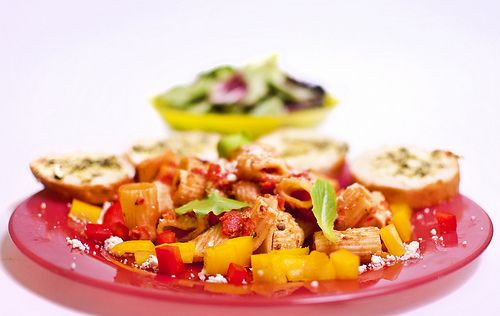Last Meals May Predict Guilt Or Innocence: High Calorie, Meaty Foods Most Popular Among Guilty Death Row Inmates

People are often asked, “If you could choose any food as your last meal, what would it be?” as a way to evaluate consumption desires when the future holds no value. Answers ranging from steak at a five-star restaurant to comfort-food like mac-and-cheese may indicate something that goes beyond taste preference. According to a recent study published in the journal Laws, last meal requests may offer signals on whether death row inmates are guilty or innocent.
Typically, social circumstances gives meals meaning, as they influence food intake and the eating behavior of individuals either directly or indirectly, consciously, or subconsciously. The food choice of individuals who eat alone are impacted by social factors because attitudes and habits develop through interaction with others, according to the European Food Information Council. When people eat with family and friends, the quantity of food increases as the number of diners grow.
Social and psychological factors, such as surroundings and self-perceived guilt or innocence, will most likely influence inmates’ food selection. There will be a notable difference in food selection on whether it’s the prisoner’s last day behind bars, or whether they are on death row before their execution order. Kevin Kniffin, Cornell University researcher, believes the last meal choice of death row inmates before facing imminent execution, may be useful for the legal community when it comes to assessing the innocence and the perceived innocence of those who have received the death penalty on the past.
In the self-funded study, Kniffen and Brian Wansink, Cornell professor of consumer behavior and nutritional science, investigated whether traditionally customized last meals may predict defendants’ guilt or innocence by examining the content of last meal choices and last words of people executed in the U.S. Meal requests were required to fall within a budget, with no alcohol allowed for the prisoners. The researchers then analyzed the last meals of 247 people executed between 2002 and 2006 to discover the association, if any.
The findings revealed those who reported self-perceived innocence were 2.7 times more likely to decline a last meal than those who admitted guilt. Moreover, those who were admittedly guilty selected 34 percent more calories of food and were also more likely to request brand name, comfort-food items. “Social circumstance often gives meals meaning, so it is logical that the last meals of those on death row may signify something beyond taste preference,” said Kniffin, according to the Cornell University Food and Brand Lab. This systematic analysis may provide a window into self-perceived innocence or self-proclaimed innocence based on last meal requests from death row inmates.
Similarly, a Cornell study published in the journal Appetite, found death row inmates mostly order high-caloric foods such as French fries, soda, ice cream, hamburgers, chicken, steak, and pie as last meal items. The prisoners’ proportionally high in protein and fat while low in fruits and vegetables meals were also seen to match the food eating patterns found within insecure environments. This highlights how food is used to mediate feelings of stress and distress. "In some ways, this might be a way to bring the level of stress and negative excitement down to something that's something a little bit more manageable," said Brian Wansink, lead author of the study, to CBS News. "You don't find people going for Neapolitan ice cream or for Chunky Monkey or Chubby Hubby. They go for chocolate; they go for vanilla."
Sources:
Kniffin KM and Wansink B. Death Row Confessions and the Last Meal Test of Innocence. Laws. 2014.
Kniffin KM, Shimizu M, and Wansink B. Death row nutrition. Curious conclusions of last meals. Appetite. 2013.
Published by Medicaldaily.com



























